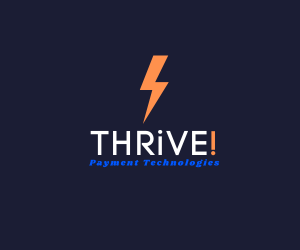11 important considerations for building your website
How to make your website a strategic brand building and business asset
Whether you’re just starting a new business or have been established for quite some time, building the right website to represent your business is an important decision every business owner needs to make.
In today’s competitive marketplace, distinguishing your business from the rest of the crowd starts with a well built,
high quality website with well written copy that converts. The truth is anyone can throw up a website and say they’re open for business but just because the website is online, doesn’t mean it’s going to bring in new customers or communicate the value of your business in the marketplace. The fact is, your customers or prospective customers can likely find a competitor that can do the same thing you can do.
Our philosophy around creating a website is such that your website is a very central part of your brand and a distinguishing part of your business. Therefore, the right amount of time, effort, creativity needs to go into producing the right website for your business so that it produces the results you’re hoping for and brings in new business for your bottom line. Here are a few questions to consider as you embark on a website redesign or website launch.
What is the main goal or action you want people to take when they arrive on your website?
It could be eCommerce, appointments, contacts, blog readers, email subscribers, etc.
Branding?
Have you expressed your mission, vision, values, and used this to inspire your visual identity and messaging. Advertising agencies like L2 Digital can help you connect these areas to build a brand your customers love.
- Brand Heart: This is an articulation of your brand’s core principles
- Brand name.
- Brand essence: This is your voice, tone, and personality.
- Competitive Analysis/SWOT Analysis. Understanding what differentiates you in the marketplace.
- Customer Personas/Market Analysis. Knowing you your customers are and who you are trying to reach.
- Messaging: Know your tagline, value proposition, and messaging pillars to ensure your visual identity communicates the right story.
- Marketing plan strategy.
What colors represent your company?
This should be consistent from your logo, to your social, to your website. A consistent look and feel builds trust and distinguishes your company.
Typeface - Your typeface selection can say a lot about who you are as a company. This should be consistent across the board.
Content - The quality of the content on your website is communicating either positively or negatively about your business. The tone of voice are you using for your content is so important and should be consistent. Spend the most time on your ABOUT page as it's one of the most viewed pages on any website.
Logo - should be a visual representation of your branding.
Photography - The importance of your visual identity can't be overemphasized.
What features do you want included?
Scheduling
Credit Card Processing
What time frame do you need your website created in?
This is the actual design time on the website once you've solidified the content, brand, colors, logo, goals for the website and more.
How will you update the website?
Creating a website and letting it sit there and get stale is a waste of time. You need to keep the content fresh, update your pages, maintain an active blog, and update your products and services regularly so your business continues to grow.
What’s your marketing plan for your website?
Build it and they will come is not the right strategy for your website. Build it and promote it is. Starting with SEO and moving to social, keyword ads, and more will help you connect with the right people looking for your products and services.
Hopefully this list will help you think about the time and detail that needs to go into creating your website. L2 Digital Marketing handles the entire branding, visual, photography, content development and solutions for your company. If you've already completed some of these steps, we can simply design the layout of the site based on your specs and to your exact liking. Either way, we're here to serve.
Contact us here to learn more.
















